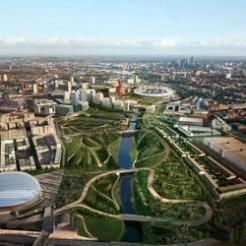Belinda Pratten wonders what the long-term voluntary sector legacy will be once the Olympic Games leave town.
Having been selected as an Olympic ‘Games Maker’, my cousin is now staying with us for the duration. Her enthusiasm for the games is infectious, as is her obvious and continuing delight in her role - even after working ten-hour shifts and queuing for a train home.
And in my one foray to the stadium (for the opening ceremony dress rehearsal) it was apparent that this delight was shared by her fellow volunteers. A more diverse group you are unlikely to meet – 70,000 people from all walks of life and from all over the country, they were without exception helpful and good-humoured. They seemed to want to share their excitement and enjoyment of the event with the thousands of us attending.
Their contribution is impressive and their commitment remarkable.
But – and this is no disrespect to them – I am still left wondering what the longer-term legacy will be. Has the Games ‘inspired a new generation’ of volunteers, or has it provided an opportunity for already active citizens to take part? Of those I spoke to, most fell into this second group – community activists, scout leaders, school governors or hospice volunteers who all wanted to be part of this ‘once-in-a-lifetime’ event.
It is impossible to say whether this small, if random, group are typical Games Makers, but it does suggest that, at the very least, Locog has been able to build on an existing ‘civic core’ of volunteers. It may also have encouraged others, perhaps many others, to get involved for the first time. But what will happen when the show leaves town?
This government, like the one before it, has placed a high value on volunteering. But it has tended to focus on high-profile initiatives, such as the Olympics or the National Citizen Service. Even the government’s grassroots Social Action Fund prioritises projects that can “mobilise large numbers of people” or “give people the opportunity to help the most vulnerable people in society”.
Yet most volunteers – and voluntary organisations - are engaged in small-scale action in their community, however that is defined, whether by geography, identity or place. And there is a long history of people who are vulnerable or marginalised, for whatever reason, coming together to help themselves and each other; to play an active role in society.
These organisations are the glue that binds society together. Few of them will want to deliver public services or own local assets, but they will want to ensure that they, and their members, have a say in how those services or assets are run. Some may want to grow in size, but more will simply want to get better at doing what they do best: furthering their mission and meeting the needs and aspirations of their members.
Although these organisations may not be directly affected by cuts in public spending, as cuts to local infrastructure start to bite it is hard to see how grassroots action will continue to be nurtured and sustained over time; how these organisations will be able to come together, learn from and support each other; or how their voices will be heard. This legacy is currently at risk.
With all the talk of transforming and rationalising infrastructure, it seems that we have forgotten what it is actually for. It’s not just about preparing voluntary organisations for market: infrastructure organisations also provide information, advice and support to the grassroots; build bridges and share learning between groups; and make links between communities and decision-makers.
The case needs to be made for infrastructure organisations in all these roles. Not simply as business advisers, but as a vital resource for increasingly hard-pressed communities and groups. A source of patient social capital.
So as we celebrate the volunteers of the Olympic Games, let’s not forget that we also need organisations who can support and sustain voluntary action from the bottom up.
Creating ‘an ethos of volunteering’ must be about more than finding placements for the reserve army of labour – the young, the old, the unemployed. It must also be concerned with investing in, and mobilising the little platoons of the big society – and the organisations that support them.









